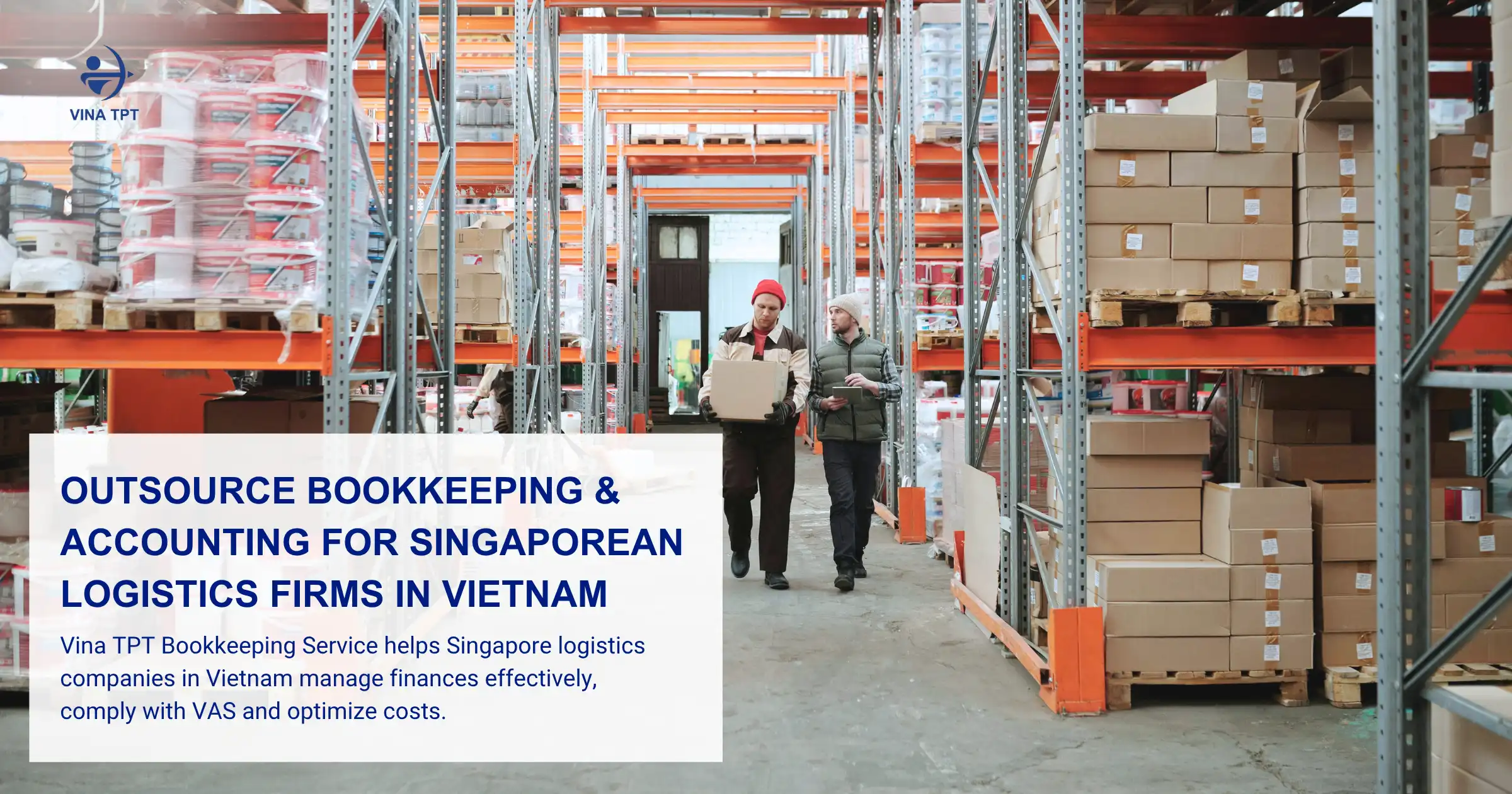1. The Financial Pulse of Every Logistics Company
In the world of logistics, everything revolves around numbers – from shipping costs, fuel costs to payments to suppliers. For Singaporean companies expanding operations in Vietnam, each month is a separate “financial cycle”. If a business is like a living body, monthly accounting is the “heartbeat” that keeps the system running smoothly.
Recording, summarizing and reporting monthly financial information helps management understand the spending, revenue, and profit situation of each transportation route or each warehouse. Thanks to this data, businesses can quickly detect problems, for example, a certain route has an unusual increase in fuel costs, or a partner is late in paying and make adjustments within the month instead of waiting until the end of the fiscal year.
2. Inside a Typical Monthly Accounting Cycle
To put this into perspective, imagine a monthly accounting cycle in the logistics industry that starts with recording each bill of lading each shipment, each delivery becomes a financial data stream. The accounting department then reconciles it with the invoice from the transport provider, fuel payments, tolls, or warehousing costs.
In addition, the business must also take inventory of the inventory in the transit warehouse, calculate the loss and depreciation of the transport vehicles. Once all the data has been updated, the final step is to compile the monthly financial report including revenue, expenses, and profits.
A professional accounting bookkeeping service will take care of this entire process, ensuring that all the numbers are accurate, transparent, and updated promptly. This is especially important for companies with operations spread between Singapore and Vietnam, where small discrepancies in data can affect the entire reporting system.
3. Why Outsource Bookkeeping Is Becoming a Strategic Move
In recent years, more and more Singapore logistics businesses have chosen to outsource bookkeeping instead of maintaining an in-house accounting team. The reason lies not only in saving on personnel costs, but also in accuracy and speed.
When outsourcing accounting services, businesses are supported by experienced specialists and modern software systems, allowing access to real-time data (real-time reporting). Managers in Singapore can immediately view the financial reports of the Vietnam branch at any time, without having to wait for manual file submission.
In addition, outsourced accounting services help increase cross-border transparency. All data is managed according to the same standards, avoiding discrepancies between countries. This not only helps the board of directors make decisions faster, but also minimizes risks in auditing and tax reporting.
4. Key Data Reports That Drive Logistics Decisions
In the logistics industry, financial data is not just a record but also a “compass” for all operational decisions. When properly compiled, monthly accounting reports become an “insight hub” that helps management see the big picture.
For example, an operating cost report might show that a shipping route from Ho Chi Minh City to Singapore is consuming more fuel than usual. A revenue report by route might show that domestic shipping is generating higher profit margins than international shipping. Or a profit report by partner helps managers see which partners are contributing the most to overall revenue.
Thanks to periodic reports, Singaporean investors no longer have to wait for annual audits to know the business situation. They can make quick decisions, reallocate resources, or adjust transportation strategies in just a few days, something that used to take months.

5. Compliance with Vietnamese Accounting Standards (VAS)
For foreign-invested logistics companies, especially those from Singapore, compliance with Vietnamese Accounting Standards (VAS) is mandatory. All financial statements, value-added tax (VAT) and corporate income tax (CIT) declarations must be prepared and submitted on time.
However, this is not easy, as the Vietnamese accounting system has many detailed regulations and is regularly updated. This is where a professional accounting bookkeeping service plays an important role: they help businesses ensure legal compliance, reconcile correct data, and maintain transparency in all financial data.
As a result, businesses avoid audit and tax risks, and can focus all their efforts on core activities like operating and expanding the logistics network.
6. Vina TPT Bookkeeping Service: Turning Numbers into Insights
When it comes to reliable outsourced accounting services in Vietnam, Vina TPT Bookkeeping Service is a prominent name. Vina TPT’s difference lies not only in accurate bookkeeping, but also in the ability to turn numbers into practical business strategies.
Vina TPT understands that each logistics enterprise has its own characteristics – from fleet size, warehouse model to transportation fee calculation. Therefore, they not only prepare financial reports according to VAS but also analyze monthly data, helping enterprises understand cost trends, route profits and the efficiency of each operation.
Through regular consulting sessions, the Vina TPT Bookkeeping Service team supports Singaporean enterprises to make more accurate investment decisions, manage cash flow more effectively, and gradually build a sustainable financial system in Vietnam.
Contact Vina TPT today for a free consultation and tailored solutions for your logistics business.


